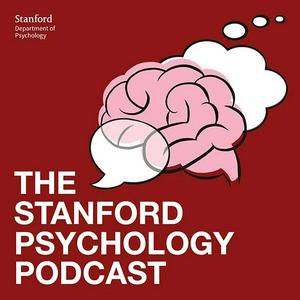Eric chats with 2024 Nobel Laureate Geoffrey Hinton and Stanford Professor Jay McClelland, two pioneers who have spent nearly half a century laying the groundwork for modern-day AI, advancing research on neural networks long before it captured the world's imagination.In fact, their early work faced significant skepticism from the scientific community - an experience they candidly discuss in this episode. This wide-ranging conversation covers everything from the capabilities of recent breakthrough LLMS like DeepSeek to AI agents, the nature of memory and confabulation, the challenges to aligning AI with human values when we humans don’t even agree on our values, and Geoff's fascinating new theory of language, featuring an analogy of words as thousand-dimensional, shape-shifting Lego blocks with hands.Geoff, who retired in 2023, divided his time between the University of Toronto and Google DeepMind. With numerous accolades including the 2018 Turing Award and 2024 Nobel Prize in Physics, he is perhaps best known for co-developing the backpropagation algorithm - now a cornerstone of AI research. Jay, currently at Stanford and Google DeepMind, has revolutionized our understanding of human learning through his work on Parallel Distributed Processing (PDP), applying neural network principles to understand phenomena like language acquisition. His insights into human learning have profoundly influenced how we understand machine learning.Their friendship dates back to the late 1970s and grew stronger as both collaborated with fellow pioneer David Rumelhart. They share some touching memories about Dave in this episode. Remarkably, despite decades of friendship and building upon each other's work, this appears to be their first recorded conversation together. Eric challenged them to discuss their latest insights and disagreements.This episode was recorded on January 29, 2025.JOIN OUR SUBSTACK! Stay up to date with the pod and become part of the ever-growing community! https://stanfordpsypod.substack.com/If you found this episode interesting at all, consider leaving us a good rating! It just takes a second but will allow us to reach more people and make them excited about psychology.Links:Geoff's websiteGeoff's Google ScholarJay's websiteJay's Google ScholarEric's websiteEric's X @EricNeumannPsyPodcast X @StanfordPsyPodPodcast Substack https://stanfordpsypod.substack.com/Let us know what you think of this episode, or of the podcast!
[email protected]
